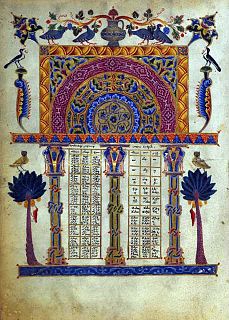Related Research Articles

Alexandria is a Mediterranean port city in Egypt. Founded in c. 331 BC by Alexander the Great, Alexandria grew rapidly and became a major centre of Hellenic civilisation, eventually replacing Memphis, in present-day Greater Cairo, as Egypt's capital. During the Hellenistic period, it was home to the Lighthouse of Alexandria that ranked among the Seven Wonders of the Ancient World, as well as the storied Library of Alexandria. Today, the library is reincarnated in the disc-shaped, ultramodern Bibliotheca Alexandrina. Its 15th-century seafront Qaitbay Citadel is now a museum. Called the "Bride of the Mediterranean" by locals, Alexandria is a popular tourist destination and an important industrial centre due to its natural gas and oil pipelines from Suez.

Eratosthenes of Cyrene was a Greek polymath: a mathematician, geographer, poet, astronomer, and music theorist. He was a man of learning, becoming the chief librarian at the Library of Alexandria. His work is comparable to what is now known as the study of geography, and he introduced some of the terminology still used today.
Maximus, also known as Maximus I or Maximus the Cynic, was the intrusive archbishop of Constantinople in 380, where he became a rival of Gregory Nazianzus.
Patristics or patrology is the study of the early Christian writers who are designated Church Fathers. The names derive from the combined forms of Latin pater and Greek patḗr (father). The period is generally considered to run from the end of New Testament times or end of the Apostolic Age to either AD 451 or to the Second Council of Nicaea in 787.
The Patrologia Graeca is an edited collection of writings by the Christian Church Fathers and various secular writers, in the Greek language. It consists of 161 volumes produced in 1857–1866 by J. P. Migne's Imprimerie Catholique, Paris.

A dioptra is a classical astronomical and surveying instrument, dating from the 3rd century BC. The dioptra was a sighting tube or, alternatively, a rod with a sight at both ends, attached to a stand. If fitted with protractors, it could be used to measure angles.
Psychological Abstracts was an abstract and index periodical and the print counterpart of the PsycINFO database. It was published by the American Psychological Association and was produced for 80 years, ceasing publication at the end of 2006. It was produced monthly and contained summaries of English-language journal articles, technical reports, book chapters, and books in the field of psychology.

Seeing Islam As Others Saw It: A Survey and Evaluation of Christian, Jewish and Zoroastrian Writings on Early Islam from the Studies in Late Antiquity and Early Islam series is a book by scholar of the Middle East Robert G. Hoyland.
Sophronius II briefly served as Greek Patriarch of Alexandria in 941.
Job served as Greek Patriarch of Alexandria between 954 and 960.
Stephanus of Alexandria was a Byzantine philosopher and teacher who, besides philosophy in the Neo-Platonic tradition, also wrote on alchemy, astrology and astronomy. He was one of the last exponents of the Alexandrian academic tradition before the Islamic conquest of Egypt.
Bardas Phokas was a notable Byzantine general in the first half of the 10th century, and father of Byzantine emperor Nikephoros II Phokas and the kouropalates Leo Phokas the Younger.

The Armenian Bible is due to Saint Mesrob's early-5th-century translation. The first monument of Armenian literature is the version of the Holy Scriptures. Isaac, says Moses of Chorene, made a translation of the Bible from the Syriac text about 411. This work must have been considered imperfect, for soon afterwards John of Egheghiatz and Joseph of Baghin were sent to Edessa to translate the Scriptures. They journeyed as far as Constantinople, and brought back with them authentic copies of the Greek text. With the help of other copies obtained from Alexandria the Bible was translated again from the Greek according to the text of the Septuagint and Origen's Hexapla. This version, now in use in the Armenian Church, was completed around the year 434.
Lardea or Lardeya is a ruined late Roman and medieval fortress, situated near the village of Lozenets in Straldzha Municipality, Yambol Province, south-eastern Bulgaria. In the Middle Ages, Lardea often changed hands between Bulgaria and Byzantium.
Podalia, also spelled Podalaea or Podalaia (Ποδαλαία), Podallia (Ποδαλλία), and Podaleia (Ποδάλεια), was a town of ancient Lycia, mentioned by several ancient authors.
Isaac of Alexandria may refer to:
Patriarch Sophronius may refer to:
Patriarch Sophronius of Alexandria may refer to:
Christodulus I of Jerusalem, also Christopher, was Melkite Patriarch of Jerusalem of the Church of Jerusalem from 937 to 951. Early in his patriarchate he was confronted with Muslim rioting and church destruction.
References
- "Isaac (941–954)". Official web site of the Greek Orthodox Patriarchate of Alexandria and All Africa. Retrieved 2011-02-07.